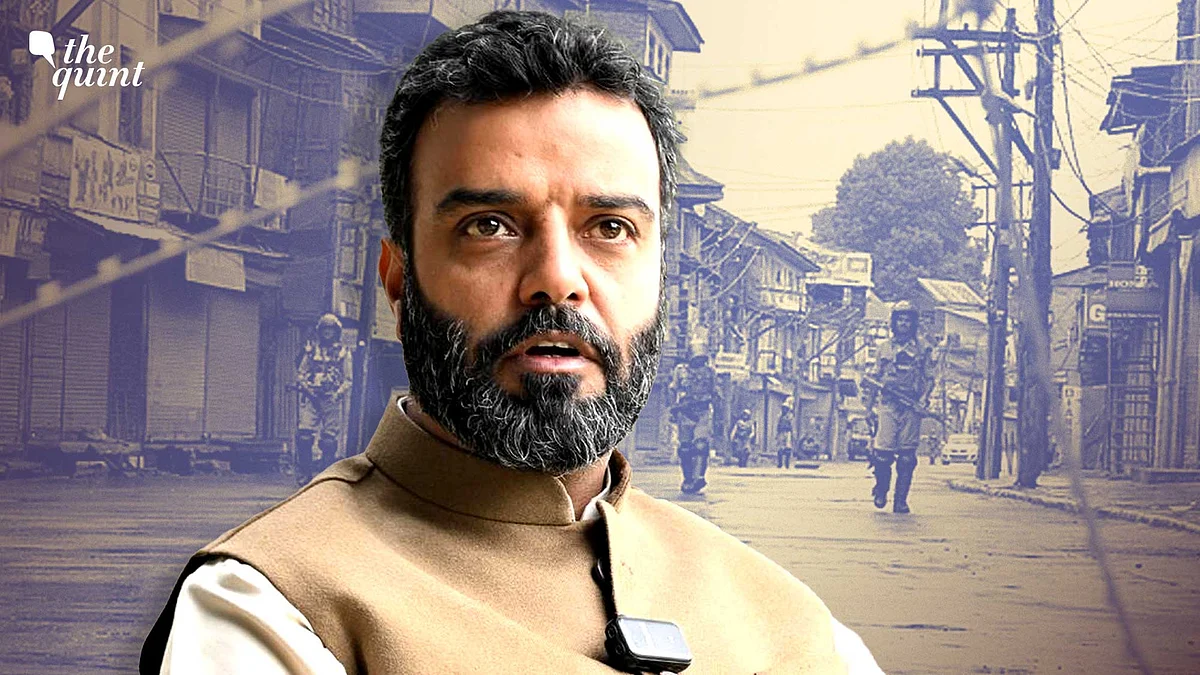
As an MP, I Believe Faith Must Guide Politics in Kashmir
Accountability and faith are crucial reforms needed for Kashmir's politics, its future: MP Aga Syed Ruhullah Mehdi.

advertisement
The state of polity in Kashmir cries for faith — faith of the people, and a faith to hold itself accountable. The perception of politics has unjustifiably grown cynical, borne out of the quiet resignation of Kashmiris to illusory promises and a growing sense of indignation.
As I see it, Jammu and Kashmir’s politics lacks a conscience, a zameer. It envisions itself as above all authority. Often and as dictated by colonial projects, politics bereft of religion is the politics of justice and equality. But what shapes our sense of morality if not our faith?
The Quran tells us to help one another in goodness and piety, but not to tolerate wrongdoing under the guise of cooperation. Upon Adam (as) was bestowed the ideals of faith, modesty and sound mind by Allah (swt) through the angel Jibreel (as) — deen, haaya, and akal.
The three exist together in symphony. There is no faith without the akal – the mind and critical thinking. Intelligence and rationality, knowledge and observation equally shape our belief and practice — faith without the contemplations of the mind is dangerous. That is a faith bereft of the path paved by individual conscience, an inner moral compass.
If it wasn’t for politics, I would be unable to serve my people. But polity is not inherently corrupt and evil, it is a version of it which envisaged itself above all.
My politics doesn’t exist without my religion – every decision I make is deeply informed by my conscience, which is answerable to God. My faith makes me, it makes my work and the practice which allows me to dispense the duties I was entrusted with, albeit alongside morality and honesty.
Disaffection in Jammu and Kashmir
Jammu and Kashmir, we have grown almost desensitised to structures of polity that continue to betray the promises made to us. The promises of election rallies and party manifestos are quickly forgotten by those who ascend to power and this falsehood is a longstanding fixture of our “new normal.”
Meanwhile, those who dissent against or question these institutions are seen as elements of indiscipline and of disquiet. But for society to progress as God imagined it, we must take a stand against structures which erase, repress and deceive, lest they shall fester in our community.
The Plight of Kashmiri Youth
It is essential to show them a light, an earnest politics which liberates them. This requires a fundamental and structural change of such institutions through faith, transparency and resistance.
It was Imam Hussain (as) whose commitment to his faith brought him to refuse the authority of a system (Nizaam) which was self-serving and paid little heed to the principles of justice, accountability and good conscience.
Faith can become a means to guide our inner moral compass and further, support democracy and free will. The order of law and the word of God may appear dissimilar but stand united on one fundamental plank – both strive to serve the people.
Today, it seems as though the truth of polity, and its relevance to democracy is lost—with vote banks, political leaders, monolithic parties and institutions that seem to be accountable to nothing and no one—neither their people, nor their values.
(Aga Syed Ruhullah Mehdi is Member of Parliament, Srinagar, Lok Sabha, and former Jammu & Kashmir state minister. This is an opinion piece and the views expressed above are the author’s own. The Quint neither endorses nor is responsible for the same.)
- Access to all paywalled content on site
- Ad-free experience across The Quint
- Early previews of our Special Projects
Published: undefined